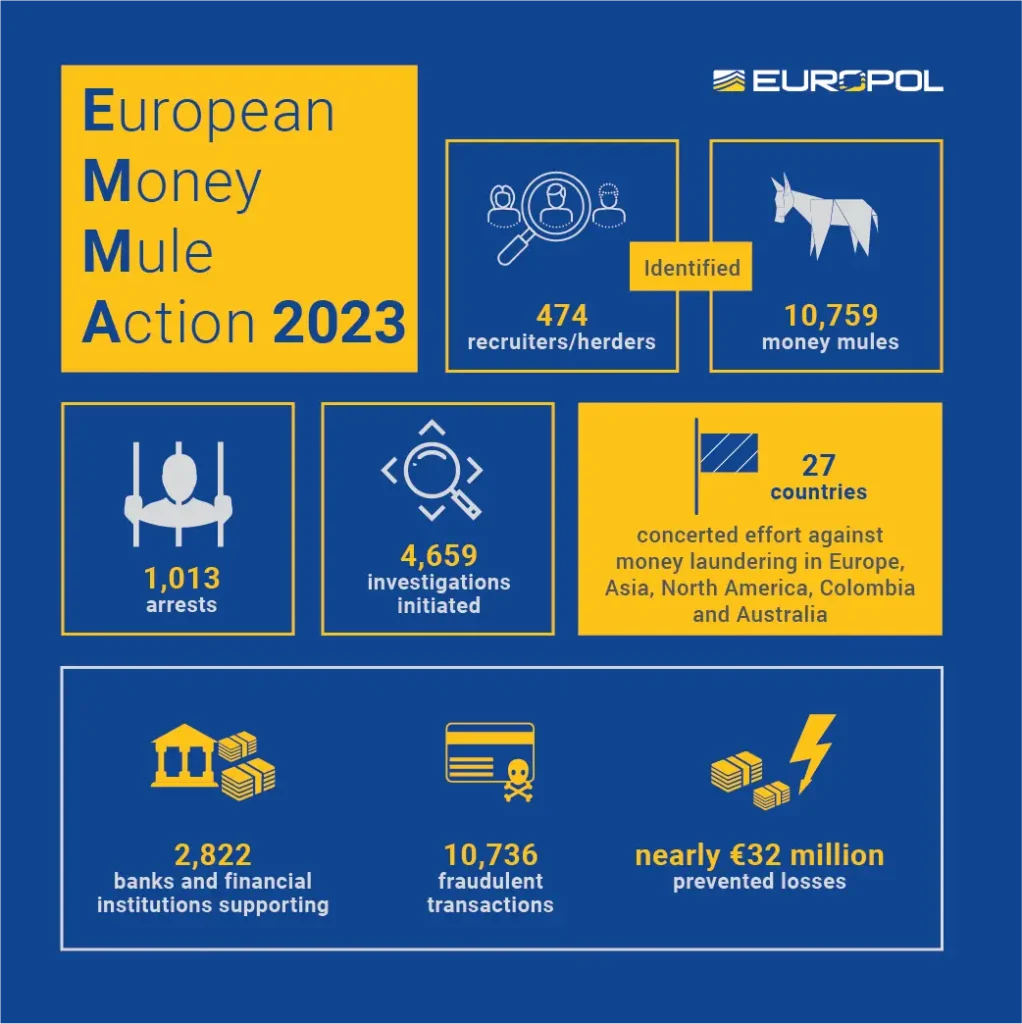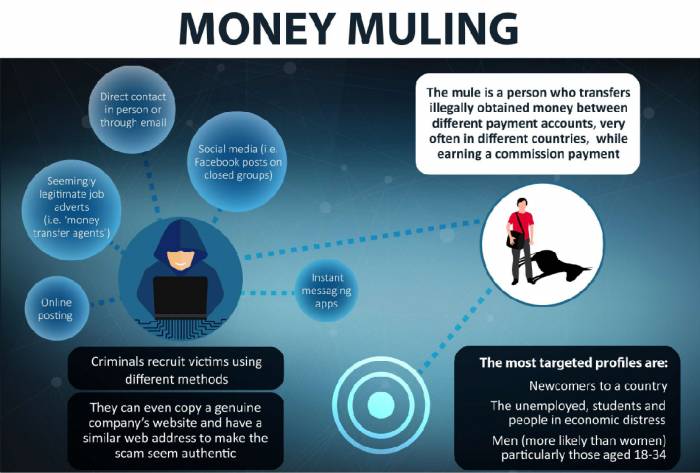Money muling: Scams via apps and social media are numerous and very dangerous. In recent times, one that is all the rage is money mulling, which is sophisticated and can cheat many people by simulating plausible dynamics. It consists of money laundering, exploiting a human chain of money transfers, in which the swindled are rewarded through a commission.
As a rule, the target is contacted by a stranger who, after striking up a conversation and gaining the interlocutor’s trust, asks to make a money transfer using the scammed person’s bank account in exchange for a profit. Getting money to make a transfer sounds a little too good to be true. Indeed, it is not, but many people still do not realise this. Instead, the alarm should go off instantly when you are given the opportunity to make easy money without taking risks because no one gives money away.
How the fraud works
To avoid falling into the trap, Europol has released a document explaining how these scams take place, what the pattern is and what risks are involved in participating in the money ring. Firstly, one should be suspicious of unsolicited and unknown contacts promising to earn money. Another decoy ad is job offers from foreign companies looking for local agents, often with ads containing grammatical errors. The person making the first contact also always shares an email address linked to a free web service, such as Gmail, Hotmail or Yahoo!, which does not refer to the company.
Moreover, these advertisements almost always specify that there is no need to have past experience or a high degree of education (quite the contrary, because the less educated are, in principle, more easily circumvented). The last but important detail is the requirement to use one’s bank account to transfer money.
Although not exhaustive, there is also a sketch of the targeted people and the tools fraudsters use to approach new victims. The most sought-after targets are people under the age of 35, those who have recently moved to another country, those who are unemployed, students, and people who are in financial difficulties (information easily found by browsing social profiles).
To contact the people to be bypassed, fraudsters usually resort to email, messaging applications such as WhatsApp, Viber, and Telegram, the social media with the most users (Facebook and Instagram), and online pop-up ads.


How to defend yourself
Besides the suspicion that comes automatically, at least for those who are familiar with the web and the evolution of online scams, there are some useful countermeasures to analyse the possible unwanted contact. The first step is to research the company and the person offering the job and easy money.
A rule that should be clear but unfortunately does not yet concern one’s own data, both personal and banking, is never to give information to strangers or people you do not trust. If you suspect you are the target of a scam, you should stop banking transactions and report the activity to the police.
Even if becoming part of the Money Muling system is not a deliberate choice but a compulsion, several risks are involved. In addition to the loss of money (some have lost €3,000 and some many more), the list includes possible physical or psychological violence by the cybercriminals themselves, the blocking of bank accounts and the possibility that banks will no longer grant loans. However, there is also the obligation to serve a prison sentence, do community work, or even pay a fine. It should not be forgotten that being part of the Money Muling scheme means favouring money laundering.

If something is too good to be true, it is not
To get an idea of the numbers generated by this scam, in December 2023, the European Money Mules Action operation conducted by Europol with the police of 27 countries uncovered and stopped 474 recruiters and 10,759 money mules, with more than a thousand people arrested. The problem is that the level of Money laundering is now very high, and too many people continue to fall into the trap. Forgetting that easy money does not exist, because if something is too good to be true, it is because it is not.



